The leaders of all three Government parties usually limit their joint appearances for significant new decisions, or, more recently, drastic pandemic responses.
But, last week, the full slate of coalition leaders came out to launch a document with the low-key title of "Housing for All: Q4 2021", the second quarterly report into the coalition's housing masterplan.
From the stage of the Government Press Centre, the Taoiseach, Tánaiste, Green Party Leader and Minister for Housing were all keen to point to progress. An increase in home building and mortgage drawdowns is evidence, they say, that the ship is starting to turn. And it needs to, both politically and socially.
House prices increased by 14% in the year to November, the 13th month of growth in a row. While there’s optimism that double-digit increases won’t be repeated in the year ahead, almost every commentator is predicting that prices will continue to rise in 2022.
Home ownership rates among the so-called millennial generation have collapsed, and polls show those voters abandoning the Government parties.
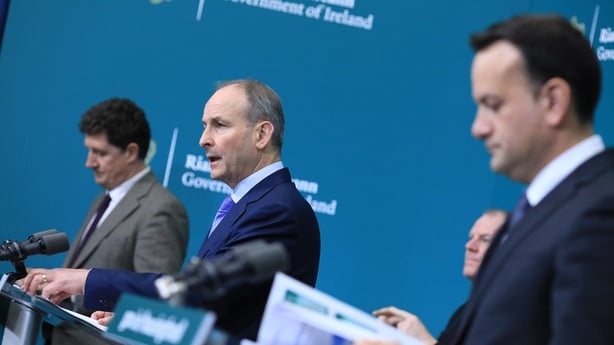
The coalition is placing its faith, and political future, in increasing the supply of all types of housing: Council houses, affordable homes, rental properties and private homes. The Government wants home building across all tenures to go up, and is banking that prices will stabilise if that happens. More homes, they argue, mean cheaper homes.
But there isn’t consensus that the policy can work and there are those who suggest there is an alternative way to view affordability: that homes are too expensive and they need to come down in price. Instead of increasing supply, or at least in addition to increasing supply, efforts should be made to bring property values down.
Estate agents and institutional investors have a vested interest in increasing property prices, Dr Rory Hearne, a social policy academic at Maynooth University and the author of Housing Shock, told Prime Time.
"They all want house prices to continue to rise and they materially benefit very significantly from it."
He said the result of that consensus is a "normalisation of the housing crisis".
As recently as 2006, the majority of people in their late 20s owned their own home. By the 2016 census, the equivalent age where more householders owned rather than rented was 35.
Read more:
The staggering generation gap in the housing market
How everything is different for today's first-time buyers
Affordability is a major driver of that shift. Prime Time reported yesterday that since the 1980s average house prices, adjusted for inflation, have increased by over 230%.
The average house in the late 1980s cost €42,000, which equates to €80,000 in today’s money. In contrast, the buyers of today spend, on average, €272,00 on a home. House prices are now out of the reach of many.
"I don't think it's acceptable or good for society that people cannot develop their own independence and move into their own home," Dr Hearne said.
Housing supply is only just starting to pick up and keep pace with natural changes in demographics, according to Conall MacCoille, the Chief Economist at Davy, Ireland's largest stockbroker and wealth manager.
"It's going to take some time for the ownership rates among the 30 to 40 year-olds to recover."
Price inflation, according to Mr MacCoille’s most recent analysis, shows little sign of easing.
The Davy report from last month is titled, ominously, "Grim picture for home buyers".
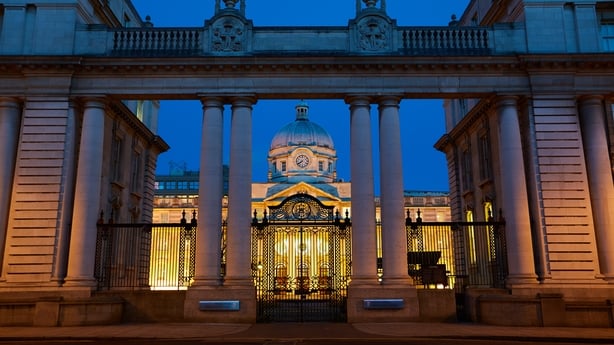
That outlook, Dr Hearne believes, means the State should intervene to discourage price increases by reducing the number of potential buyers and limiting the demand for properties.
"We know that there are people in Ireland who have a lot of money who are going around buying up secondhand homes."
Last year, the Government increased stamp duty to deter the bulk purchase of new houses, but Dr Hearne wants to see further restrictions on the properties investors can buy.
"I think it would be legitimate for a three year period to implement a ban on non home buyers from purchasing homes in, for example, rent pressure zone areas."
The State could also create a regulatory body to monitor house sales and prevent short-term "flipping" of properties. Some vendors, Dr Hearne argues, are listing houses and then re-listing them at much higher price just a few months later.
"There is huge profit gouging and I think there's a legitimate role for the State to interfere," he said.
Dismissing the suggestion that such a move would be an overreach into individual rights, Dr Hearne contends, "housing is a fundamental requirement and the housing market cannot be treated as any other market".
But there isn’t evidence of widespread purchasing of secondhand homes, according to Dr Ronan Lyons, an economist at Trinity College Dublin, who told Prime Time that CSO figures show 16 per cent of homes sold in the last two years were to "non households".
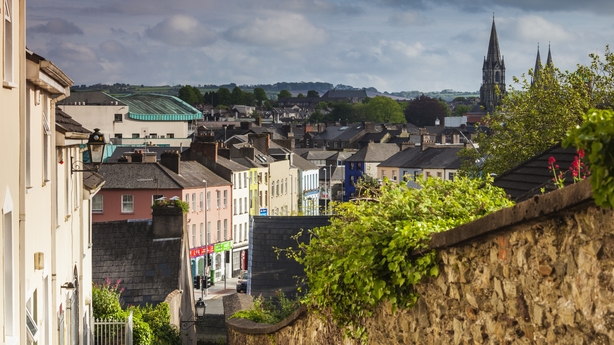
"The number of households buying homes has more than doubled in the last decade, from below 22,000 per year in 2010-2011, to over 44,000 since 2016, so it's not obvious that people who are mortgage-ready are unable to find a place to buy."
He also suggested reducing investment by potential landlords in Rent Pressure Zones would have the opposite effect on affordability.
"If the problem in RPZs is a lack of rental supply, it seems perverse to ban people from adding to that rental supply."
The cost of building is a greater driver of unaffordability than investment in property as an asset, according to Mr MacCoille.
"Any kind of artificial intervention that's there to push house prices down through some kind of diktat is going to be very difficult. It won't solve the problem."
Investment in Irish property is overstated, Mr MacCoille also said.
"The amount of people renting is falling. The amount of people who are buy-to-let investors who have a second property is falling."
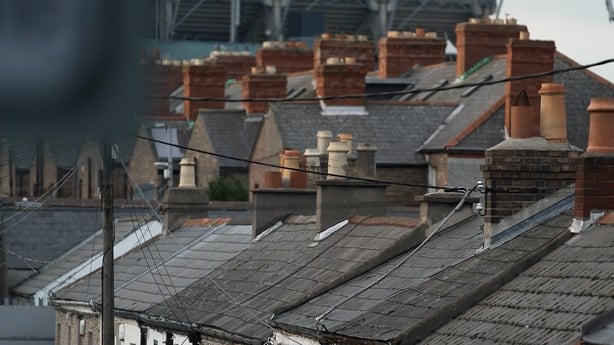
There are, MacCoille also points out, many people who can afford the current level of house prices as wages continue to grow.
"Some people have had a very difficult pandemic, but amongst higher paid portions of the labour market you are seeing wage growth," he said.
"Income taxes are up 20% this year."
Calls for further limits on who can buy houses would serve only to stifle supply, he believes.
"We sorely need investment. There would be even less rental properties had it not been for the influence of institutional investors over the past five years."
While the property industry itself would strongly resist measures to limit who can buy homes, Dr Aidan Regan, a political economist at UCD, reckons many homeowners would see the benefits.
"A lot of people who own their own home probably don't care that much if the price goes up much further, because they want their children to be able to buy their own home," he said.
A wealth tax that included the value of taxpayer’s homes would be a disincentive for house price increases, he said.
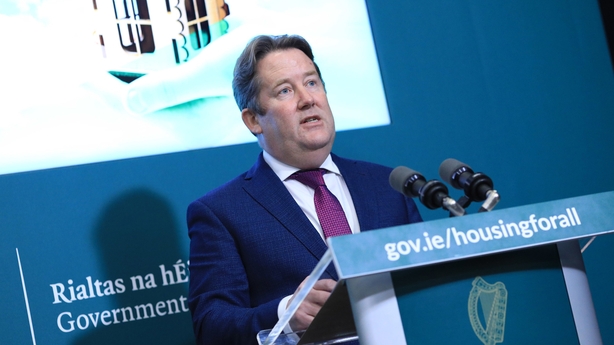
"The purpose of the tax wouldn’t necessarily be generating revenue. It would be to try to stop the incentive to want to have price rises in housing going up."
The existing Local Property Tax should be having a similar effect, said Dr Lyons, but it is constrained by being infrequently updated and largely self-assessed.
"A property tax is a wealth tax. If we want to tax wealth, we should tax property more."
While those who have recently bought homes may baulk at the idea of prices going down, those who have owned their home for a longer period of time may see fewer negatives.
"If you’re a retired couple living in Mount Merrion in a house that's worth €850,000, do you really care if the price drops by €100,000? Maybe not," said Dr Regan.
Ultimately, he said, it would be a brave Government to interfere in the property market with new taxes or regulations.
"It’s about a Government saying we want collectively to stabilise prices to make housing affordable and, if that negatively affects some people in the higher end of the income and wealth distribution, so be it," he said.
"I think most Governments will be rewarded for that."
This week, online and on television, Prime Time is examining the issue of a generation – housing. You can read more articles in the series at rte.ie/primetime.






